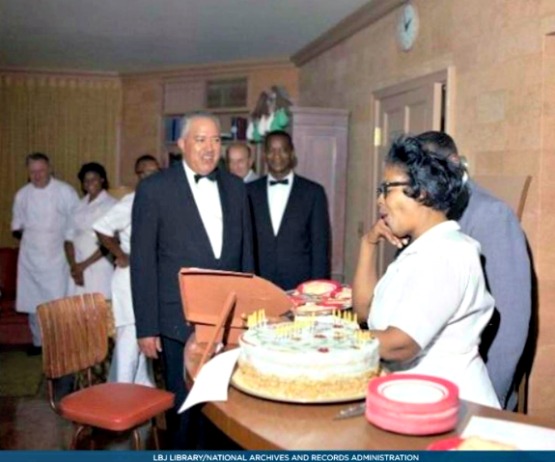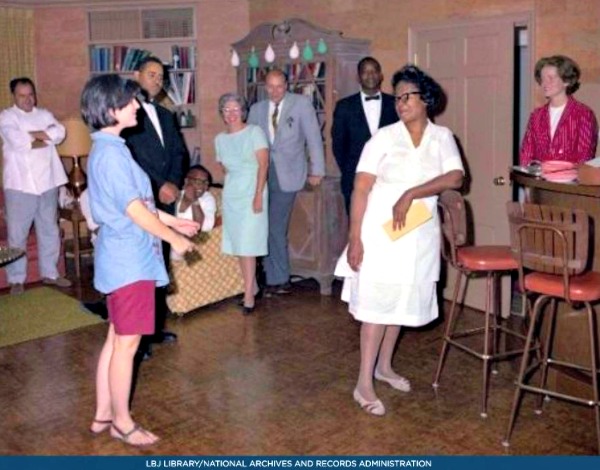Black women didn’t just start coming to the rescue in 2017, saving US Senate races. They have a long-standing history of being the backbone, heart, and soul of movements and revolutions shaping history. The cliché, “Behind every successful man is a strong woman,” could not be more accurate for black women.
We don’t have to travel far through history to find examples of this. Michelle Obama was the most decorated first lady in our nation’s history. She was Ivy-League educated, championed girls’ education, nutrition and served as a shining example of grace, poise, and elegance as she served alongside the first black President of the United States. But for every Michelle Obama, Rosa Parks, Coretta Scott King, or Harriet Tubman whose platform allowed her to break barriers, 100 black women worked behind the scenes to support movements, sacrificed, marched, boycotted and cooked while they played integral roles in shaping history. We must make sure we tell their stories. I recently learned about a black woman, an unsung hero of the civil right movement, who was instrumental in passing the Civil Rights Act of 1964.
Zephyr Wright was the personal chef of President Lyndon B. Johnson and his family for over 27 years. During her time at the White House, she was dubbed “queen of the kitchen on the second floor” and was known to have learned the family’s tastes so well she rarely had to ask Mrs. Johnson what she should cook. “I have yet to find a great chef whose desserts I like as well as Zephyr’s,” remarked First Lady Johnson.
Wright was hired by Lady Bird Johnson in 1942 as she majored in home economics at the historic black college, Wiley College. She would make meals for family dinners and when the Johnson’s entertained guests. When the family moved to the White House, Wright and her husband followed; she, as the personal chef and her husband as a messenger. While at the White House, Zephyr worked to ensure President Johnson was fit and healthy, often consulting with White House physician, Rear Admiral George Burkley to craft meals that were both appetizing and low in calories. Though she controlled the calories, she had trouble controlling the portions President Johnson requested. She once sent him a note that read, “Eat what I put in front of you and don’t ask for more and don’t complain!”
The relationship Wright had with President Johnson afforded her the ability to speak openly and honestly and offer her perspective on vital issues. One such issue was the Civil Rights Act of 1964. Lady Bird Johnson asked Zephyr to drive one of the family dogs back to Texas. Wright declined, explaining that black people had a hard-enough time finding a place that will accommodate them and it would be doubly hard to do so with a pet. Sharing this perspective with the Johnsons is said to be the reason a public accommodation section preventing segregation was integrated into the bill. In lobbying Congress for this specific provision, President Johnson often used Zephyr’s experiences as evidence. When President Johnson signed the Civil Rights Act, he saved one of his pens for Mrs. Wright.
Though men often get all or most of the glory, women have had just as much if not more influence on shaping the past and the present. They will undoubtedly shape the future as they take their rightful places, taking on prominent roles in government, industries that have been dominated by men and shattering every glass ceiling in the way of reaching their goals. This Black History Month, it’s important to make sure we tell the stories of the many women who, like Zephyr Wright, served as the backbone, heart, and soul of our communities, but rarely have had their stories told.
Gary Hardie
He attended the University of Nevada, Las Vegas, majoring in English, with a minor in marketing and is pursuing his MBA in Organizational Leadership and Sustainable Business Practices at Pepperdine University.
Hardie currently works as a Regional Manager for a non-profit educational service provider in Los Angeles providing extended learning opportunities in after school, intervention, outdoor education and summer programming.
He also serves as a governing Board Member for the Lynwood Unified School District Board of Education, the same district he attended school growing up.
His work and volunteer experience in public school settings has provided him with expertise in financial planning, budgets, organizational development, staffing, personnel, parent relations, grant writing and program development.


